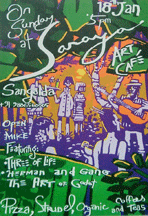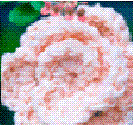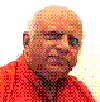In most cases at least 3 or 4 families and their own family friends would chalk out the initial preparation plans of what we would do, the route we would take and what we should cook and the things each family would need to take with them for our day-long excursion.
During my early days in this region, this entire area consisted of seven sheikhdoms. It was then known as the Trucial States of Oman – a British protectorate. My very first picnic to the east coast was in a Land-Rover over dirt tracks and rough terrain through narrow gorges through the mountains.
It was sometime in 1970 during the period when the first 90 km asphalt-bitumen paved dual-carriageway from Sharjah to Dhaid was still in its construction stage. It was a fascinating trip, the scenery simply breathtaking – the serene wadis, the local Arab folks greeting us as we drove along.
Then by mid-seventies the entire section of the coastal was connected from Dhaid to Fujeirah via Masafi. And by the late seventies the a single-carriageway road from Fujeirah to Dibba via Khor Fakkan was completed. It was then an ideal situation to travel to the east coast for a day of sheer fun.
We would get ready on a Thursday. A meeting point was established for the next day, usually a Friday - an official holiday for all. At the crack of dawn we would set off for the east coast. Making sure our cars were all filled up with 'petrol' (yes, that's what it was called, not 'gas') ('gas' was somebody who talked too much).
Heading south-east passing mostly desert areas, we would arrive at the beautiful oasis town of Dhaid where we made the first stop for breakfast. We then proceeded onward to Masafi for a brief stop again for refreshments and a visit to the roadside grocery store and the carpet shops along the way. As we travelled on the stretch of the road from Dhaid to Masafi we passed through sprawling vegetable and date farms and scenic wadis down below along the way.
The local Arab men waved out to us as they went about they usual chores, tending to their camels and goats. The silhouettes of mountains against the rising sun were a photographer’s delight.
As we descended upon the city of Fujeirah – to the east we could see the Arabian Sea. It seemed calm with oil tankers on the horizon. Looking north, in the distance was the southern part of the Hajjar Mountains – a spectacular landscape. These mountain often appeared to have a purplish hue to them. To the south lay the mangroves of Kalba, and the coastal region of Liwa, Oman.
Heading north, we cruised along the beach road trying to find a reasonably good secluded spot to settle ourselves down. To our left were the Fujeirah Mountains and to our right was the beach. We were unable to have the best of both, so we eventually decided to settle down on flat ground under a large shady tree on the lee-side of the mountain range. We could see the beach and the sea in the distance with the road in sight in between. We would have to leave the idea of going to the beach sometime after lunch during that afternoon.
Part II
The local Arab men waved out to us as they went about they usual chores, tending to their camels and goats. The silhouettes of mountains against the rising sun were a photographer’s delight.
As we descended upon the city of Fujeirah – to the east we could see the Arabian Sea. It seemed calm with oil tankers on the horizon. Looking north, in the distance was the southern part of the Hajjar Mountains – a spectacular landscape. These mountain often appeared to have a purplish hue to them. To the south lay the mangroves of Kalba, and the coastal region of Liwa, Oman.
Heading north, we cruised along the beach road trying to find a reasonably good secluded spot to settle ourselves down. To our left were the Fujeirah Mountains and to our right was the beach. We were unable to have the best of both, so we eventually decided to settle down on flat ground under a large shady tree on the lee-side of the mountain range. We could see the beach and the sea in the distance with the road in sight in between. We would have to leave the idea of going to the beach sometime after lunch during that afternoon.
Part II
Our kids were small then – they seem to be happy, they have already started running about in the sun. They have brought along some favourite toys too.
Well then folks, let’s get going, we say to ourselves, we haven’t got much time you know, we have to make the best of the day. So its time now for some improvised sports now: volley ball, football, badminton or playing cards. Soon all this should be followed by our usual and famous sing-song session without which no picnic is complete, not missing out of course on the traditional Goan folk songs. To sum it up, let’s put it this way: No song - no Goan, No Goan – no song, No song - no picnic.
It is almost afternoon, and it's time now to get the fire going.
“Hey Joe”, I hear Joan’s voice say, “Can you organize some fire to warm up the biryani?”
“Oh, sure” says Joe.
“ Hey Tony, can you help me get three huge stones to put the coal under, and also get the biryani ‘chatty’ to place on it?” says Joe.
“Oh, certainly”, replies Tony, while muttering to himself ‘will Joe ever do anything on his own without delegating the job to someone else? Don't you know Tony has got his camera on a tripod trying to photograph the acacia tree against the backdrop of the mountains?'
So Tony asks Vicky to help Joe. Vicky is a good chap - always very helpful, so he obliges. He's guy who does not know to say 'no'.
Dom is setting up the volley-ball net – he has already tied one end of it to a tree, the other to the open trunk of his car. How innovative! Jolly Uncle Dom has always kids around him, and today is no exception - he is digging a hole in the ground to set up a beach umbrella that he has carried along for the kids.
Then suddenly all men leave their games, and converge to confer how best to light up the fire. Our young kids lend a helping hand gathering fallen twigs from the desert trees. Very soon we see the fire going and smoke signals are being sent up into the sky. Paper plates, forks and spoons are all out from the car trunks. Huge cans of water have been propped up on a folding stool to wash hands. There is no shortage of any drinking water either. There is laughter in the air. Every one is in a jolly good mood. Tony is playing his favourite country songs on his radio and he has made sure that the harmonica is there in the glove compartment of his station wagon for later.
Biryani flavour starts sifting through the air. Some men are seated on the fallen bark of a tree nearby, while the lone singer is strumming on his guitar to the strains of John Denver's 'Take me home, country roads', getting 'tuned up and ready' for a sing-song. Seated next to him is Johnny, holding on to something that looks like a Pepsi can – but then, for that matter there could be anything in there. Leena is busy talking to Jenny, telling her what all things she has put in the ‘Hyderabadi Biryani’ that makes it so tasty, while her visiting friend from Abu Dhabi is reluctant to part away with her secret mutton vindaloo recipe, come what may. It appears like she is adamant to keep it a total secret for a long time to come. Tony secretly thinks it won’t be a secret anyway, after he has eaten it.
The food is warmed up – and so are all men. Invariably, somehow they are all holding Pepsi cans in their hands now. Again, there could be anything in those cans. They are clutching them tight. Are they afraid to leave them anywhere around? Perhaps. They are possibly very hungry too, waiting to pounce on the biryani at the slightest hint. But then the final whistle or grand final call for the food from the women is quite far away. Peter is trying to balance the skewers of mutton kebab over the coal. The salad is still being tossed! The potluck collection of food is quite an appetizing array. It looks like each family has contributed quite a bit for all to share. That’s the spirit that always was.
Then someone hollers ‘Grace’. 'Grace time'. ‘Let’s say Grace’. ‘Come on, aunty, you start’. ‘No man, you start’ comes the reply. 'Grace' is recited after a short deliberation. Apparently there is not much of a rush after all to the folding bench where all the food is laid. The kids are being served by Moms. Dads are still chatting. Others are are trying to set a date for the next Gala Dance they are organizing the following month in Ajman.
Finally every one has helped himself. Some discussion is going on about what we should do for the next picnic. Someone suggests we should perhaps come during the next Eid holidays and spend at least 3 days here. One chap recommends transportation by bus. Most agree as it is very tiring to drive back with the sun in your eyes, or after the darkness falls.
After some rest some of the men walk with their kids to the seashore to play in the sand. Some are seen taking forty winks under the shade of the tree. Joe has managed to tie a bed sheet between a tree and the open trunk of his car while Sam snoozes below. Some men are in their favourite swimming trunks on the beach. Others are already in the water.
The afternoon is now slowly turning into evening. The sun will shortly go down over the mountain range. Heading north by north-west, it will be a long drive ahead and our mini-convoy of cars will shortly disappear into the sunset over Sharjah, as we hope to safely make it home, before eight o’clock. Lest we forget, it is still Friday. We simply cannot afford to miss one of the greatest and longest series of the time that delighted us all, and that’s none other ‘Dallas’ and the conniving ways of JR.
During the eighties, the entire coastal region was connected by a modern highway along the eastern part of the United Arab Emirates, spanning from Fujeirah to Dibba against the backdrop of the magnificent Hajjar Mountains.
Dom is setting up the volley-ball net – he has already tied one end of it to a tree, the other to the open trunk of his car. How innovative! Jolly Uncle Dom has always kids around him, and today is no exception - he is digging a hole in the ground to set up a beach umbrella that he has carried along for the kids.
Then suddenly all men leave their games, and converge to confer how best to light up the fire. Our young kids lend a helping hand gathering fallen twigs from the desert trees. Very soon we see the fire going and smoke signals are being sent up into the sky. Paper plates, forks and spoons are all out from the car trunks. Huge cans of water have been propped up on a folding stool to wash hands. There is no shortage of any drinking water either. There is laughter in the air. Every one is in a jolly good mood. Tony is playing his favourite country songs on his radio and he has made sure that the harmonica is there in the glove compartment of his station wagon for later.
Biryani flavour starts sifting through the air. Some men are seated on the fallen bark of a tree nearby, while the lone singer is strumming on his guitar to the strains of John Denver's 'Take me home, country roads', getting 'tuned up and ready' for a sing-song. Seated next to him is Johnny, holding on to something that looks like a Pepsi can – but then, for that matter there could be anything in there. Leena is busy talking to Jenny, telling her what all things she has put in the ‘Hyderabadi Biryani’ that makes it so tasty, while her visiting friend from Abu Dhabi is reluctant to part away with her secret mutton vindaloo recipe, come what may. It appears like she is adamant to keep it a total secret for a long time to come. Tony secretly thinks it won’t be a secret anyway, after he has eaten it.
The food is warmed up – and so are all men. Invariably, somehow they are all holding Pepsi cans in their hands now. Again, there could be anything in those cans. They are clutching them tight. Are they afraid to leave them anywhere around? Perhaps. They are possibly very hungry too, waiting to pounce on the biryani at the slightest hint. But then the final whistle or grand final call for the food from the women is quite far away. Peter is trying to balance the skewers of mutton kebab over the coal. The salad is still being tossed! The potluck collection of food is quite an appetizing array. It looks like each family has contributed quite a bit for all to share. That’s the spirit that always was.
Then someone hollers ‘Grace’. 'Grace time'. ‘Let’s say Grace’. ‘Come on, aunty, you start’. ‘No man, you start’ comes the reply. 'Grace' is recited after a short deliberation. Apparently there is not much of a rush after all to the folding bench where all the food is laid. The kids are being served by Moms. Dads are still chatting. Others are are trying to set a date for the next Gala Dance they are organizing the following month in Ajman.
Finally every one has helped himself. Some discussion is going on about what we should do for the next picnic. Someone suggests we should perhaps come during the next Eid holidays and spend at least 3 days here. One chap recommends transportation by bus. Most agree as it is very tiring to drive back with the sun in your eyes, or after the darkness falls.
After some rest some of the men walk with their kids to the seashore to play in the sand. Some are seen taking forty winks under the shade of the tree. Joe has managed to tie a bed sheet between a tree and the open trunk of his car while Sam snoozes below. Some men are in their favourite swimming trunks on the beach. Others are already in the water.
The afternoon is now slowly turning into evening. The sun will shortly go down over the mountain range. Heading north by north-west, it will be a long drive ahead and our mini-convoy of cars will shortly disappear into the sunset over Sharjah, as we hope to safely make it home, before eight o’clock. Lest we forget, it is still Friday. We simply cannot afford to miss one of the greatest and longest series of the time that delighted us all, and that’s none other ‘Dallas’ and the conniving ways of JR.
During the eighties, the entire coastal region was connected by a modern highway along the eastern part of the United Arab Emirates, spanning from Fujeirah to Dibba against the backdrop of the magnificent Hajjar Mountains.
Some of the other scenic spots along the east coast we pinicked at were at Dibba, Rul Dadna, Badiyah and Khor Fakkan. In the following years we did have some upgrades. We carried kebab pits and warmed food on portable LPG gas stoves. And at times we stayed at the local hotels and occasionally dined in a fancy restaurant. But there is nothing to beat the enjoyable picnics of the great outdoors - specially the ones on the east coast of the UAE of the olden days and ways.
These are other things we did were our simple pleasures of living, working and enjoying ourselves with whatever we had those days. But the picnics to the east coast of the United Arab Emirates will forever remain etched in my mind.
Article and all photographs by: Tony Fernandes
| < Prev |
|---|
















